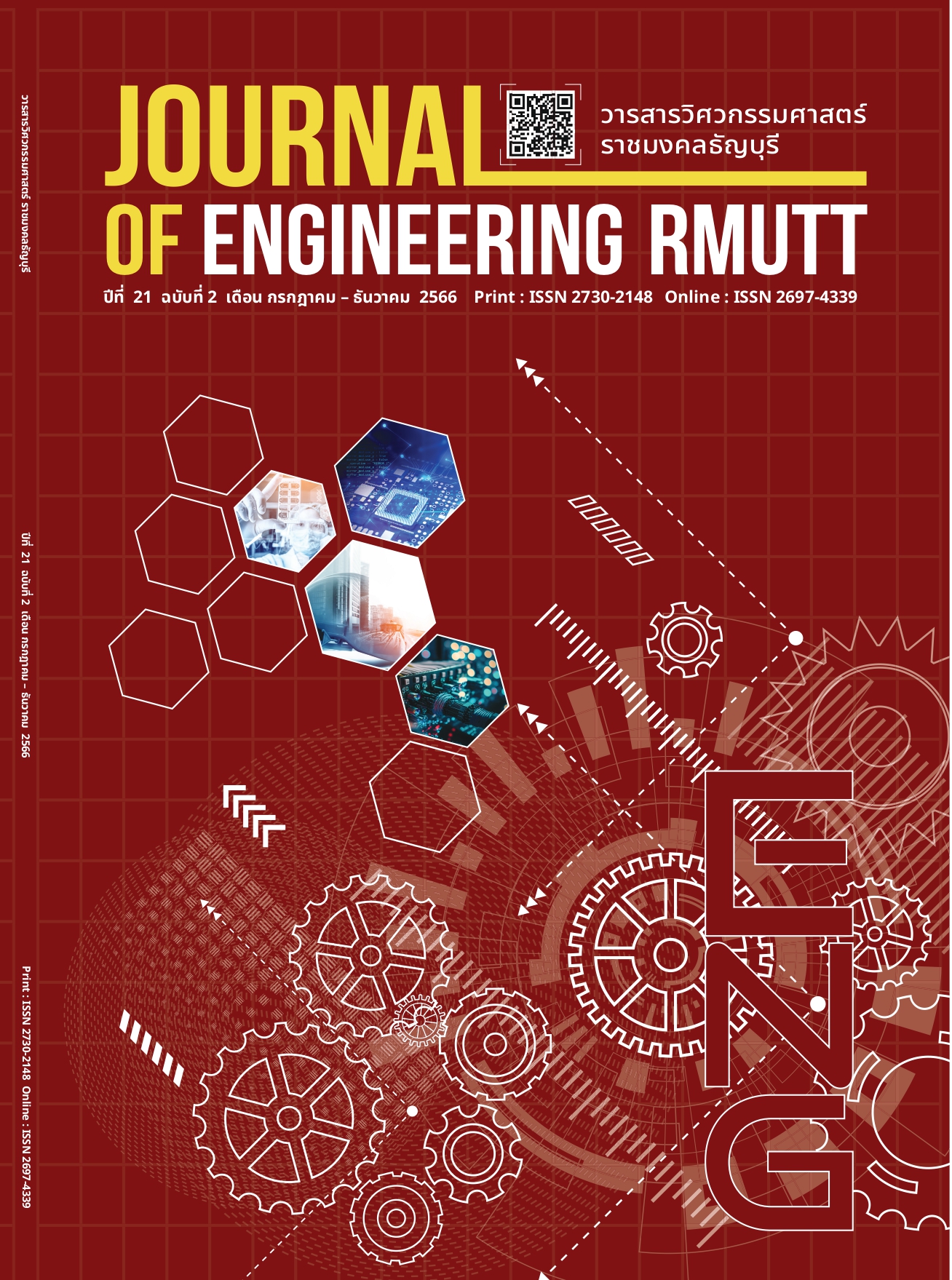The Use of Rapid Setting Mortar as Floor Leveling in Polyurethane Coating
Main Article Content
Abstract
The purpose of this paper was to determine rapid setting mortar mix design for the use as a leveling layer in polyurethane floor coating. Rapid setting mortar required superplasticizer and accelerator to satisfy with the flow rate of mortar within 130±5 percent and compressive strength of mortar not less than 200 and 400 ksc at 8 hours and 24 hours, respectively. For at least 95% probability of passing the required compressive strength, target means should be 217 ksc and 435 ksc, respectively. Then mortar mix proportions were designed according to the ACI 211.1-91 method. Then mortar mix proportions obtained were examined with the flow table test, the compression test and the tensile test. The mortars were cast within a range of atmospheric temperatures, 29-32°C, 32-34°C and more than 34°C. Results from the study showed that the optimum mortar proportion was water to cement ratio of 0.35, Portland cement type 3 content of 588 kg/m3, superplasticizer 1.2% by weight of cement, and the accelerator 0.28% by weight of cement. The mortar reached compressive strength 217 ksc in 8 hours for the casting temperature 29°C-32 °C. And at 24 hours, mortar could reach compressive strength of 435 ksc at all of temperature ranges without adding accelerator. Although the tensile strength of the rapid setting mortar was less than polyurethane, in the application of the rapid setting mortar as floor leveling layer together with the polyurethane coating, no crack or peeling at the surface was found. Thus, rapid setting mortar might be used as floor leveling in place of the polyurethane composite at the much lower cost of construction
Article Details

This work is licensed under a Creative Commons Attribution-NonCommercial-NoDerivatives 4.0 International License.
The manuscript, information, content, picture and so forth which were published on Frontiers in engineering innovation research has been a copyright of this journal only. There is not allow anyone or any organize to duplicate all content or some document for unethical publication.
References
Abhijit D, Prakash M. A brief discussion on advances in polyurethane applications. Advanced Industrial and Engineering Polymer Research. 2020;3(3):93-101.
Changthong T, Hitmengsong K, Boonruangsri N. Concrete Pavement for Urgent Usage [senior project]. Pathumthani: Rangsit University; 2019. (in Thai)
Sukontasukkul P. Concrete. Bangkok: Wankawee Publisher; 2013.
Ramachandran VS, Paroli RM, Beaudoin JJ, Delgado AH. Handbook of thermal analysis of construction materials. New York: Noyes Publication; 2002.
Tanasalagul R, Pantongsuk T, Srichumpong T, Junsomboon J, Prakayapan W, Chaysuwan D. Effect of zeolite on early strength of portland cement mortars. Key Engineering Materials. 2019;798:358-63.
Maj M, Ubysz A, Tamrazyan A. Durability of polyurethane - cement floors. MATEC Web Conf. 2018;251(2).
ASTM C494/C494M-99a: Standard Specification for Chemical Admixtures for Concrete. Annual Book of ASTM Standards. Vol. 04.02. Philadelphia; 2001. p. 261-69.
Kamollertvara K, Ouypornprasert W. Determination of the target mean values for mass production from the specifications for common distribution in civil engineering. Journal of Engineering, RMUTT. 2019;17(2):49-62. (in Thai)
ASTM C188, Standard Test Method for Density of Hydraulic Cement, ASTM International, West Conshohocken, PA; 2017.
ASTM C127-01, Standard Test Method for Density, Relative Density (Specific Gravity) and Absorption of Fine Aggregate, ASTM International, West Conshohocken, PA; 2001.
ASTM C33/C33M-18, Standard Specification for Concrete Aggregates, ASTM International, West Conshohocken, PA; 2018.
ACI211.1-91: Standard Practice for Selecting Proportions for Normal, Heavyweight, and Mass Concrete. ACI Manual of Concrete Practice. Part 1. Michigan; 1991.
ASTM C230, Standard Specification for Flow Table for Use in Tests of Hydraulic Cement. Annual Book of ASTM Standards. Vol.04.01. West Conshohocken; 2001.
ASTM C109/C109M, Standard Test Method for Comprehensive Strength of Hydraulic Cement Mortars, Annual Book of ASTM Standards. Vol. 04.01. Philadelphia; 2001.
ASTM C190, Standard Test Method for Tensile Strength of Hydraulic Cement Mortars. Annual Book of ASTM Standards. Vol.04.01. West Conshohocken; 2001.
ASTM D638, Standard Test Method for Tensile Properties of Plastics. ASTM International, West Conshohocken; 2014.
Ramachandran VS and Feldman RF. Cement Science, Concrete Admixtures Handbook, William Andrew Publishing; 1995.


